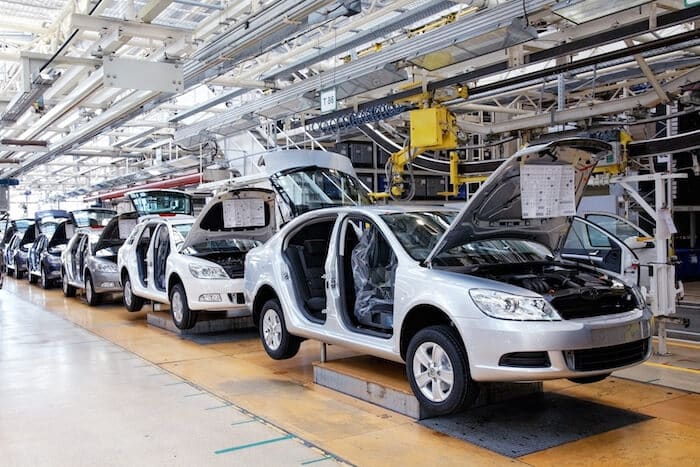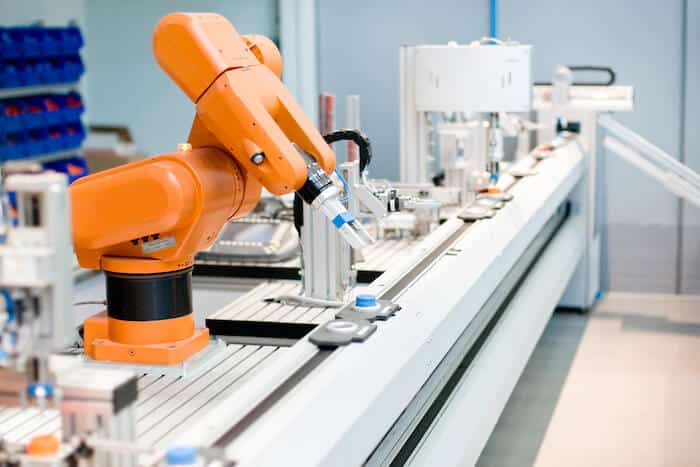When Henry Ford introduced the assembly line to his automobile plant in 1913, he reduced the time it took to make a Model T from 12 hours to about an hour and 30 minutes. These innovations ushered in a new era of mass production and a way to make inexpensive products for a growing number of consumers. The problem is that 1913 was over one hundred years ago, and while most manufacturing companies have not changed much, how we develop and sell products has changed dramatically, and so has the expectation of our customers.
If you are involved in bringing a new product to market, you need to understand the structure of most manufacturing companies and why they are that way. You also need to know why more flexible manufacturing companies oriented towards today’s product development needs are a better option. This article will cover both topics and finish with an option for finding the right manufacturing partner.
Understanding Mass Manufacturing

They have optimized every aspect of their business to produce millions of identical products over a long period for the lowest price. This is great if you are making the same product for many years. The same is true for the injection molding industry, which saw $357 billion in global sales in 2021. Yet over half of the plastics market was for automotive and packaging, driving the industry to focus on those two big markets and not necessarily on new products.
Other products, like smart phones or telecommunications equipment manufacturing, are also set up for large volumes over an extended period. Take the top manufacturing company for electronics, Foxconn, and its relationship with Apple. With over 35 locations globally to manufacture most of Apple’s 84 million iPhones shipped in the fourth quarter of 2021 alone, companies like Foxconn focus on massive volume and invest in tooling and processes that make sense for that type of product.
Most manufacturing companies want to take on projects from large customers, enterprises, who will ask them to set up a manufacturing process only once, then use it for years to make the same product, which is great if that is what your company wants to do. Other manufacturers want to do high-value, lower volume production with stringent quality systems like aerospace or health care products. (This is still not what product companies are looking for.) The entire semiconductor manufacturing industry is another segment that has different customers and priorities from what you need for a new product launch.
Another thing to be aware of is how these manufacturing companies are also only focused on manufacturing. They want a well-defined design package and don’t partner on other aspects of product development. So, if you work with them, you need to build your own partnerships for the rest of the process.
New, Nimble Manufacturing Companies For Today’s Products

Agile manufacturing developed as an option for large, enterprise-focused manufacturing to meet the needs of companies just like yours. This approach involves some key characteristics like cooperation between partners, embracing change, nimble organizations, and robust digital systems to link it all together. You will notice that the list doesn’t include the mass standardization and minimization of cost that traditional manufacturing companies focus on. Cooperation and flexibility are much more important. And that’s what your company is probably looking for.
There are a variety of technologies that nimble manufacturers employ to achieve these characteristics. Most people call this approach “industry 4.0” or “smart manufacturing.”
Besides the digital management systems mentioned in the list, they also often employ advanced manufacturing methods, including sensors in manufacturing machines to monitor processes directly, networking the machines to collect the data measured, replacing human labor with automation and robotics, and additive manufacturing. Instead of fitting these changes into an assembly line approach, they will also use reprogrammable flexible manufacturing cells to make a new product or modify the manufacturing steps for an existing product.
The first characteristic listed above is worthy of additional attention. The virtual and synergistic cooperation between partners is ideal for new product manufacturing. The partners in the process include supply chain, sales and marketing, the design team, fulfillment, and of course, manufacturing. To be successful, you need everyone to work together, have the ability to communicate and track everything, and have experts capable of managing every critical step.
The overriding concept of flexibility and adaptability also enables a vital aspect of this newer approach to manufacturing — scalability. If you are selling your product on Amazon, FBA or FBM, and you do everything right, you may see a drastic increase in sales. To meet that demand, you need a manufacturing partner that can scale up, or sometimes down, to meet the ebb and flow of sales on Amazon.
How customers buy and what they expect from products has changed how we do manufacturing. Even in the automotive space, people are shifting from the old model of making cars as quickly and cheaply as possible to using technology and modern manufacturing methods to produce a product that consumers will pay more for. The best-known example of this is Tesla’s model plant in Fremont, California. It has very little in common with how Ford made his Model T’s and more closely resembles Foxconn’s facilities for making Apple iPhones.
You don’t have to try and fit your round production needs into the square hole of enterprise-focused manufacturing companies.
Finding Virtual And Synergistic Cooperation Between Partners

Whether you are an established brand or a new startup, the Gembah marketplace is a resource for you and your team to find partners for every step of your product development process — including agile and vetted manufacturing companies that can scale to meet your current and future needs. In addition, you will find experts to help manage your supply chain and your manufacturing partner. It is also a great resource to fill out the rest of your virtual team with world-class engineers, industrial designers, and project managers ready to join you on your journey.
Also, to provide digital connectivity across the team, the Gembah platform consolidates the entire product development process in one powerful system.
Start your journey by reaching out today to discuss your product and learn how we can help. Together, we can build a manufacturing solution that would convince Henry Ford himself to replace his conveyor belts with highly automated flexible manufacturing cells.



